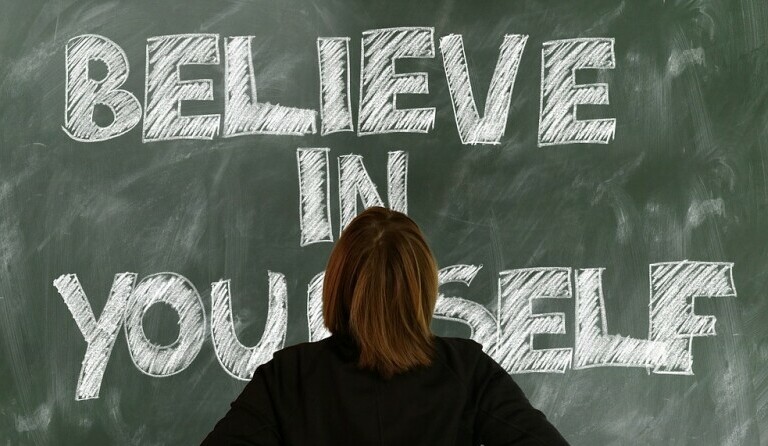Self-confidence is more than just a positive feeling about oneself; it’s the engine that propels you through life’s challenges and triumphs. In my experience, understanding self-confidence is the first crucial step toward building it. Recognizing and affirming your inherent value isn’t about arrogance; it’s about accepting yourself fully and operating from a place of strength.

The psychology behind self-worth and belief in oneself is profound. It’s the bedrock upon which you can build successes and face your failures without feeling defeated. I’ve seen first-hand how elevating one’s self-view can positively impact decision-making, relationships, and career growth.
People often hold misconceptions about confidence, equating it to personality traits like extroversion. However, confidence is neither exclusively for the bold nor shun the quiet. It’s accessible to everyone and is more about self-assuredness than volume or vigor.

If you ask me, a significant step in building self-confidence is to recognize your value. You have unique talents and qualities that contribute to the world. Don’t underestimate the worth of your contributions, no matter how small they might seem. Affirmation is powerful and acknowledging your own abilities is a transformative exercise.
As you embrace your worth, it’s important to start mapping out practices that develop a confident mindset. This proactive approach sets the stage for strategies such as positively adjusting your inner dialogue and refining body language, all of which you’ll find in the following section.
Strategies for Cultivating a Confident Mindset
I’ve found that self-confidence isn’t just a fleeting feeling; it’s a skill that you can develop and strengthen over time. Much like any other skill, it requires consistent practice and a toolkit of strategies.

One effective tool is reframing negative thoughts. The internal dialogue you hold can shape your confidence profoundly. When you catch yourself in the throes of self-criticism, hit that mental pause button. Shift to statements that support your growth and acknowledge your efforts, rather than ones that highlight your shortcomings.
Ever notice how someone who stands tall and maintains eye contact seems brimming with confidence? That’s the power of body language. Regardless of how you feel on the inside, adopting a confident stance can have a surprising impact on your inner state. It’s almost as if your body tells your mind, ‘We’ve got this.’
 Now, let’s talk about setting small, achievable goals. Every time you set a goal and reach it, you’re giving yourself a high-five in the form of self-efficacy. This builds the belief in your abilities and sets a foundation for bigger challenges.
Now, let’s talk about setting small, achievable goals. Every time you set a goal and reach it, you’re giving yourself a high-five in the form of self-efficacy. This builds the belief in your abilities and sets a foundation for bigger challenges.
Lastly, consider the people you surround yourself with. Friends, family, and mentors who uplift you and recognize your potential can reinforce your sense of self-worth. Absorb their positivity and let it fuel your journey toward a more confident you.
Overcoming Self-Doubt and Fear of Failure
You’ve likely encountered self-doubt or the fear of failure at some point in your life. It can feel like an insurmountable wall, blocking the path to your goals. But believe me, it’s a common hurdle, and most importantly, it’s one you can overcome.
Let’s start by identifying the root causes of insecurity and self-doubt. Often, they stem from previous experiences or the internalized expectations of others. To combat them, try reflecting on what specifically triggers these feelings for you. Acknowledging these triggers is the first step toward addressing them effectively.
Adopting a growth mindset is pivotal when it comes to dealing with failures. Replace the idea of ‘failing’ with ‘learning.’ Every setback is an opportunity to grow and get better. By shifting your perspective, you empower yourself to take risks and try new things without the paralyzing fear of failure.

Stepping out of your comfort zone is equally essential. It’s comfortable to stay within the familiar confines of what you know, but growth happens on unfamiliar ground.
Begin with small steps: Volunteer for a project, share your ideas in a meeting, or join a class. These acts of bravery build your confidence over time.
Managing stress and anxiety that comes with self-doubt is also crucial. Simple techniques like deep breathing exercises, mindfulness, and physical activity can have profound effects. When stress levels decrease, it’s easier to maintain a clear head and build a sense of self-assurance.
The progress you make here will set the stage for the ongoing journey toward maintaining and even expanding your self-confidence…
Maintaining and Growing Your Self-Confidence
Solidifying self-confidence is not a one-time effort, but rather a continuous journey of personal growth. The mark of truly resilient self-confidence is the ability to keep pushing forward, even when you face obstacles or setbacks. Every challenge is an opportunity to reinforce the belief in your own capabilities.

Celebrate your achievements, no matter how small they may seem. Recognizing and rewarding your own progress plays a crucial role in sustaining self-assurance. Equally important is adopting a constructive perspective on failures. Instead of viewing them as roadblocks, frame them as learning experiences that contribute to your development. This mindset not only fuels your self-confidence but also prepares you for future successes.
Resilience emerges from a strong foundation of self-confidence. When you encounter criticism or negativity, draw from your well of self-belief to remain steadfast. Resilient individuals don’t crumble under pressure; they tap into their confidence to navigate through hardships with grace.
Finally, as you become more self-assured, consider the impact you can have on others. Confidence is contagious; by supporting and uplifting those around you, you reinforce your own sense of self-worth while contributing to a positive community. Share your journey, mentor others, and celebrate their victories alongside your own.

Remember, self-confidence is a path, not a destination. Embrace the evolution of your self-belief as you encounter new challenges, learn from experiences, and influence those around you positively. KEEP STRIVING to cultivate confidence—it’s one of the most powerful tools you have for crafting a fulfilling life.



